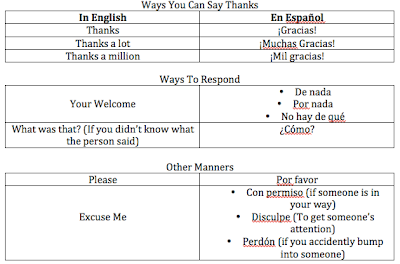how to ask the time in spanish
Hello fellow readers, thank you for choosing my lesson to help your spanish needs. In this lesson you will learn how to tell and ask time in spanish. But before we get to the hard stuff you must know the question. The question is "What time is it?". Also you must know all the numbers from 1 to 12. (Say them properly).
First things first the numbers.
In English its one, two, three, four, five, six, seven, eight, nine, ten, eleven, twelve.
In Spanish its, uno, dos, tres, cuatro, cinco, seis, siete, ocho, nueve, diez, once, doce.
Now numbers above both read the same from 1 to 12.
For example if the was 5:05, we in english would say five o' five. But on the other hand in spanish you would say son las cinco y cinco. To say it properly you say "Son las" and the first number but with the second number you just add "y" and the number
15- cuatro
30- media
45- cuarenta y cinco
55- la hora menos cinco - cincuenta y cinco
Here are some examples...
5:20 - Son las cinco y veinte.
6:30 - Son las seis y media.
1:55 - Son las dos dos menos cinco.
In the next lesson you will learn how to greet people in spanish so stay tuned!










![[Picture_1.png]](http://2.bp.blogspot.com/_85ugzDGlKmY/SuGrxN92FMI/AAAAAAAAAAc/a8UrRib1tWw/s640/Picture_1.png)
